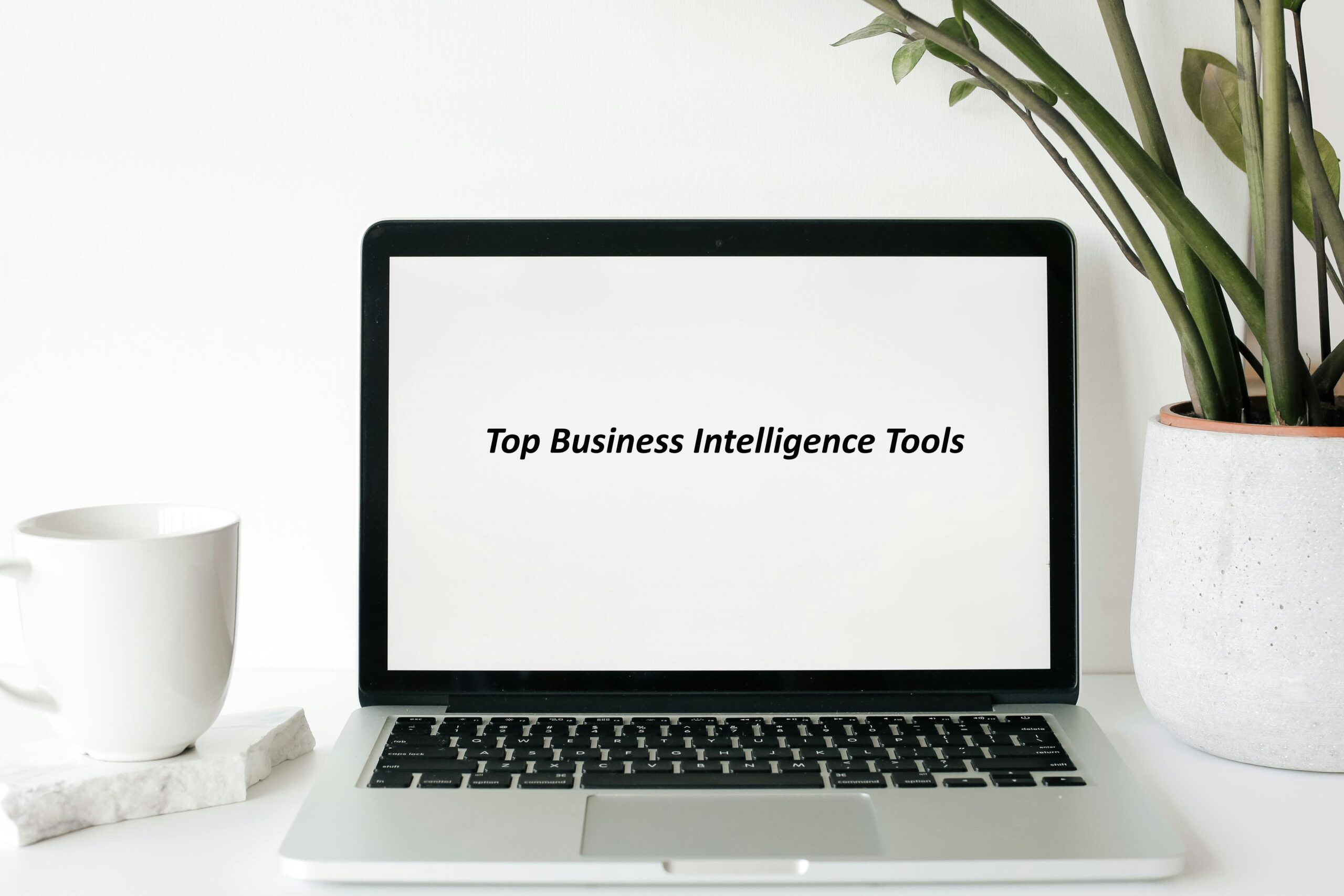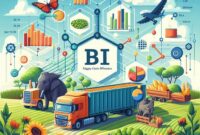In today’s data-driven world, understanding and utilizing the right business intelligence (BI) tools is essential for staying competitive. This article explores the top business intelligence tools you need to know about, highlighting their features, benefits, and how they can transform your business operations.
Top Business Intelligence Tools You Need to Know About
Business intelligence tools are crucial for turning raw data into actionable insights. Whether you’re a small business or a large enterprise, having the right BI tools can significantly impact your decision-making process. Here are some of the top business intelligence tools you need to know about:
1. Microsoft Power BI
Microsoft Power BI is one of the most popular BI tools on the market. It offers a comprehensive suite of tools to analyze data and share insights. With Power BI, you can create interactive dashboards and reports that provide a 360-degree view of your business. This tool integrates seamlessly with other Microsoft products, making it an excellent choice for businesses already using the Microsoft ecosystem.
2. Tableau
Tableau is renowned for its ability to create stunning visualizations and interactive dashboards. It is user-friendly, which means even those with minimal technical skills can create meaningful visual representations of their data. Tableau’s powerful analytics capabilities allow users to dive deep into their data, uncovering trends and patterns that might otherwise go unnoticed.
3. QlikView
QlikView is a highly versatile BI tool that offers powerful data discovery and analytics capabilities. It enables users to consolidate data from multiple sources and explore it in a highly interactive way. QlikView’s associative model allows users to make discoveries that might be missed with traditional hierarchical tools. It’s particularly useful for uncovering insights through its flexible, user-driven approach.
4. SAS Business Intelligence
SAS is a well-established player in the analytics and BI space. SAS Business Intelligence provides a robust platform for data integration, advanced analytics, and reporting. It supports a wide range of data sources and offers powerful analytics tools to help businesses gain deep insights into their operations. SAS’s advanced predictive analytics capabilities set it apart from many other BI tools.
5. Looker
Looker is a modern BI tool that is designed for today’s data environments. It allows users to explore and analyze real-time data from various sources. Looker’s unique modeling language, LookML, enables users to define and reuse business logic, ensuring consistency across the organization. Its integration with Google Cloud Platform makes it a powerful choice for businesses leveraging cloud technology.
6. Domo
Domo is a cloud-based BI platform that offers a wide range of features for data visualization, reporting, and dashboard creation. It supports a variety of data sources, making it easy to connect and integrate data from different systems. Domo’s user-friendly interface and powerful analytics capabilities make it a great choice for businesses looking to democratize data access and empower users across the organization.
7. IBM Cognos Analytics
IBM Cognos Analytics is a comprehensive BI tool that offers a wide range of features for data exploration, reporting, and visualization. It provides AI-driven insights and recommendations, helping users make informed decisions quickly. IBM Cognos Analytics also supports a variety of data sources and offers robust security features, making it suitable for large enterprises with complex data needs.
8. Sisense
Sisense is a powerful BI tool that simplifies complex data analysis. It allows users to create interactive dashboards and reports with ease. Sisense’s in-chip technology enables faster data processing, making it an excellent choice for businesses that need to analyze large datasets quickly. Its ability to integrate with various data sources and its robust analytics capabilities make Sisense a top choice for many organizations.
9. Yellowfin BI
Yellowfin BI is a versatile BI tool that offers a range of features for data visualization, reporting, and analytics. It is known for its collaborative capabilities, allowing users to share insights and work together on data analysis projects. Yellowfin’s automated insights and storytelling features help users understand their data better and make data-driven decisions.
10. Zoho Analytics
Zoho Analytics is a user-friendly BI tool that offers a range of features for data analysis and reporting. It supports a variety of data sources and provides powerful analytics tools to help businesses gain insights from their data. Zoho Analytics’ intuitive interface and drag-and-drop functionality make it easy for users to create reports and dashboards, even if they have limited technical skills.
Conclusion
Choosing the right business intelligence tool is crucial for unlocking the full potential of your data. The top business intelligence tools you need to know about, such as Microsoft Power BI, Tableau, and QlikView, offer a range of features to help you analyze data and gain actionable insights. Whether you need powerful visualizations, advanced analytics, or real-time data exploration, there is a BI tool that can meet your needs. By leveraging these tools, you can make data-driven decisions that drive your business forward.
FAQs
Q: What are business intelligence tools?
A: Business intelligence tools are software applications used to collect, process, analyze, and visualize data, helping businesses make informed decisions based on actionable insights.
Q: Why are business intelligence tools important?
A: BI tools are important because they help businesses turn raw data into meaningful insights, enabling better decision-making, improved operational efficiency, and competitive advantage.
Q: How do I choose the right business intelligence tool for my business?
A: To choose the right BI tool, consider factors such as your business needs, the tool’s features, ease of use, integration capabilities, and cost. It’s also helpful to try out demos and read user reviews.
Q: Can small businesses benefit from using business intelligence tools?
A: Yes, small businesses can benefit significantly from BI tools. They can help identify growth opportunities, optimize operations, and make data-driven decisions that contribute to business success.
Q: Are there free business intelligence tools available?
A: Yes, there are free BI tools available, such as Google Data Studio and Zoho Analytics (with limited features). These tools can be a good starting point for businesses looking to explore BI capabilities without a significant financial investment.
By exploring these top business intelligence tools, you can find the one that best fits your business needs and start transforming your data into powerful insights.



